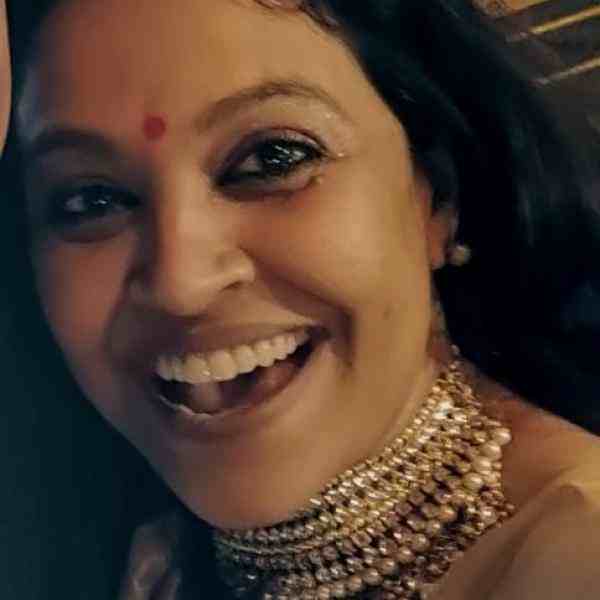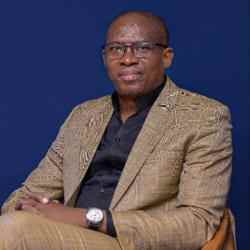For Uma, survivors of trafficking are experts of their unique lived experience. By unlocking their potential, the anti-trafficking sector will only stand to benefit from survivor-centric and survivor-led innovations and narratives.
The first step in Uma’s strategy is to build survivor peer communities. In trafficking hot spots, Uma and her team facilitate survivors to set up peer groups as they re-enter the world of family, community, and work. Survivor-peer groups are force-multipliers in several ways. They enable members to break through their shared trauma, stigma, and shame. Survivors collaborate and strategize to take charge of their compensation and legal defense against traffickers. They make vital decisions about their education, skills, and employment through the facilitation of Sanjog. They receive and support newly-arrived peers. Taking responsibilities leads them to daily wins, failures, and learning. They augment their goal-setting, problem-solving, and stakeholder management capacities – all vital leadership skills that prepare them for larger sectoral roles.
A trauma-informed leadership training program fuels and sits at the heart of this model. The Me-We-Us Spiral Leadership Training methodology pioneered by Uma takes survivors into a deep immersion into their personhood, and then gives them the skills and tactics for personal resilience, community resilience, and transformational leadership. The training bolsters survivors to first heal as individuals and then to grow into collectives that are creative, courageous, and collaborative. It trains them to network, share narratives, advocate, and build alliances as the most powerful representatives of their sector. Survivors are also equipped with the tools and how-tos of strategy, fundraising, team building, to strengthen their organizations. To augment this intensive training, Uma and her team offer mentoring and coaching to survivor-changemakers.
The peer groups then go on to set up collectives and formal organizations. They develop the norms, roles, and activities of their entities, independently. For instance, the non-profit, Utthan, which has been incubated by Uma and her team, conducts workshops on victim compensation with stakeholders from government, civil society, and media. At these training sessions, survivors are the organizers, hosts, and principal presenters. The stakeholders join the meeting as participants and guests. This upending of roles is changing the perceptions about survivors—from resourceless victims to people who are powerful, assertive, creative, and resourceful. To share another illustration, when survivors take charge of their own victim compensation cases, the results are unprecedented. Some survivors have been able to unlock compensation of up to INR 20 Lakhs, a 100X increase from the standard compensation that victims tend to receive.
For Uma, citizenship and livelihoods with dignity are the two levers that can move local survivor organizations to the next level of change-making. Citizenship becomes real when survivors start to unlock the full slate of government schemes, entitlements, and social protection programs mandated for them. This process has opened up direct contact and dialogue between survivors and public officials. It has also led survivors to recognize that they are not just beneficiaries of government services. They are a citizen base that can audit, give feedback, and hold duty bearers accountable. Uma has put technology tools in the hands of survivor groups to audit and rate the performance of their local government and allied systems. The tool generates a score card of data generated by survivors on the responsiveness of the public systems to the survivor community. This ‘citizen data’ is used by survivors for advocacy with state and national governments, media, and other policy bodies.
As survivor collectives progress, their demand and ambition for non-traditional livelihoods grows. Through a unique, ‘trauma-informed’ livelihoods and entrepreneurship training program, Uma is opening the pathways for survivors to become entrepreneurs. She is giving them the knowledge and skills to engage confidently with markets, customers, finance, and regulators. For a community that has only witnessed a brutal and exploitative world of work, Uma’s approach enables survivors to see micro-businesses as a tool for self-reliance and empowerment. In the last three years, 200 women from 15 Self Help Groups have gone on to set up individual and group businesses. These first-generation women micro-entrepreneurs have forged a partnership with the State Rural Livelihoods Mission of West Bengal. They have received start up seed capital and small loans from local banks and organizations.
For Uma, the emergence of survivor-leaders cannot be possible without an enabling eco-system of community-based grassroots organizations. Sanjog’s 13 partners in trafficking hotbeds across 11 states build the ground for survivor-led groups to thrive. Uma and her team run parallel capacity-building, peer learning and cross-pollination programs for partner organizations. The non-profit partners are coached to be the ‘guide on the side’ for survivor collectives. They are trained to facilitate survivor organizations, while providing stimulus to local communities and stakeholders to become allies.
Even as Uma builds the eco-system on the ground, she is orienting the large global funders of anti-trafficking movements to embed the idea of survivor-leadership in all their programs. Eventually, all the strategy components stack up to the national survivor-led advocacy platform, ILFAT, which is working towards survivor-centric laws in the country. But noting that the passage of a law is unpredictable, it is equally important for Uma to seed, strengthen, and scale survivor-led organizations and businesses with partners across India over the next five years.
Read less



